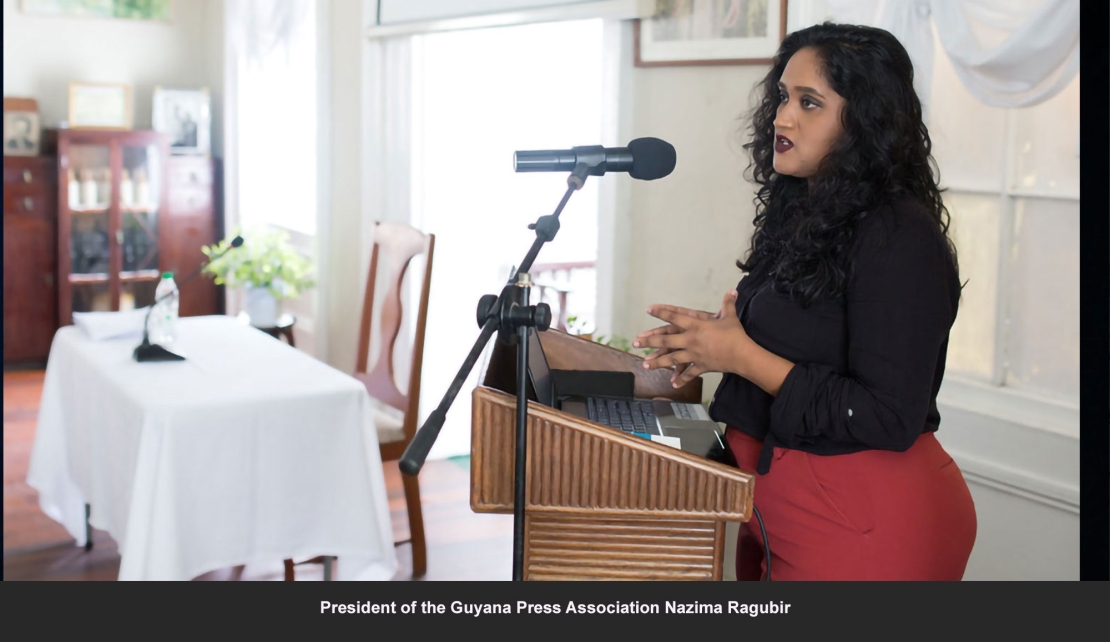GUYANA | Social media influencers cannot be regarded as journalists – GPA

GEORGETOWN, Guyana, May 5, 2022 - Following the deliberations of the recent two-day government sponsored and organised conference on the media in Guyana, The Guyana Press Association (GPA) decided to put forward its concerns in light of recent developments in the media, including the development and repositioning of social media as an alternative to journalists and mainstream media journalism.
The following is the full text of a statement from the Guyana Press Association in relation to its concerns over efforts to devalue the profession of journalism and the rise of social media and its implications:
1. Freedom of expression is a fundamental human right as enshrined in Guyana’s Constitution and the Universal Declaration of Human Rights
2. Based on utterances from a number of government officials including its panelists, the undertone appeared to be engaged in self-censorship under the guise of “responsibility” and “good”. In this regard, we commend the globally recognised Journalism Ethics, Principles and Codes of Conduct.
3. Much of the debates and disagreements at the conference appeared to stem from the decision by the organisers to conflate journalism, public relations practice and social media influence. Whether or not this was the intent, it was a grave error as each category of communication has its own role.
4. Social Media influencers, though they command some following, cannot and will not be regarded as journalists and they should never contemplate seeing themselves as such.
5. If politicians across the divide claim to have any modicum of interest in improving the standard of journalism, then they ought to immediately cease utilizing social media influencers in the place of journalists. To continue doing so is to contribute to the degradation of journalism at the altar of expediency of reach, likes and shares. In this way, sections of the public are led to believe that such social media content is in keeping with globally accepted standards of journalism. Does this mean that anyone with a few followers, limited language competence, no regard for fact-checking etc. can be regarded by himself or herself and the public as a journalist because a politician uses him or her as an information conduit?
5. The next national World Press Freedom Conference should be jointly organised with the Guyana Press Association and focus on journalism.
6. We reiterate our support for media and communication training. However, we believe that these should be provided through the University of Guyana which is an accredited tertiary institution.
7. Journalism cannot be confused or mixed up with specialised content on specific topics or projects. Media houses and government may wish to consider discussing how information products on specific projects and issues can be broadcast or published with the appropriate disclaimer so there is no confusion between paid content and journalism.
